

Small Miracles Therapeutic Equestrian Center, Inc.
1026 Rock Springs Drive
KINGSPORT, TN 37664
Mailing Address:
1026 Rock Springs Drive
KINGSPORT, TN 37664
Phone: 423-349-1111
MAKE AN INQUIRY
View our WEBSITE
EIN: 62-1603341Founded: 1995
View our PHOTO GALLERY
Profile Last Updated December 23, 2025Public Charity
Click here to view listing(s) of the program horses we are seeking

The Guardian Seal of Transparency is awarded annually to recognize an organization's commitment to transparency and accountability by their willingness to make comprehensive data about their programs, horse care practices, and governance available for public scrutiny. The Guardian Seal of Transparency is NOT an endorsement.
Last Updated: November 30, 2025
Small Miracles Therapeutic Equestrian Center, Inc. has not attained the Guardian designation for 2026.
MISSION & PROGRAMS
Mission:Small Miracles Therapeutic Equestrian Center, Inc. is a Christian-based 501(c)3 non-profit corporation founded through love to enhance the physical, social-emotional, behavioral and cognitive growth of individuals with special needs and disabilities through equine-assisted services.
Our organization conducts Equine Assisted Services in accordance with the EQUUS Foundation Guidelines on Qualifications of Organizations Conducting Equine Assisted Services (EAS).
Our organization provides outreach and/or public education programs involving horses.
100% of our total programs and services are equine-related.
Our organization is directly responsible for the care and shelter of equines involved in our programs.
Our organization does not CURRENTLY use satellite, overflow, foster, and/or outreach facilities.
Please describe what steps your organization takes to ensure that:
1) all interactions between your equines and people are mutually beneficial and conducted in accordance with the Guidelines for Human-Equine Interactions stated below;
2) all equines in the care of our organization and/or equines that participate in the organization's program have access to clean drinking water at all times; nutritious food in sufficient quantity, including natural forage such as pasture grass and/or hay; appropriate veterinary, farrier, and dental care; shelter and protection from the weather; sufficient safe space to move around comfortably on a daily basis; and daily opportunity to freely interact and have contact with other equines:
Small Miracles is passionate and committed to our equine partners’ physical, mental, emotional and overall well-being. Our equines are treated with the utmost care and respect, recognizing that they are sentient beings, not tools or objects.
We practice the following safety and ethical domains, ensuring minimal impact on the equine from EAS activities and therapies.
Proper Training: Programs are led by qualified professionals with expertise in EAS and therapeutic activities.
Horse Welfare: Prioritizing the well-being of the equine is essential, guaranteeing they are treated with respect, care and consideration of their needs.
Safe Handling Practices: Participants should be educated of safe equine handling techniques to minimize risks and establish positive interactions for both humans and equines.
Small Miracles programs and activities are carefully designed and conducted in a safe manner reducing stress to the equine, by promoting a safe environment for equines and humans. Lessons are taught/supervised by a PATH CTRI, who has the authority to remove the equine from participation upon any signs of stress. Our goal is to foster a mutually beneficial attuned relationship between the equine and human.
Small Miracles follows the five critical areas relevant to animal welfare assessment and management: nutrition, environment, health, behavior and mental state.
The Miracle Herd has access at all times to clean water, shelter from inclement weather, various forage offerings, quality grain, veterinary, dentistry and farrier care. We provide on a daily basis an abundance of turnout time allowing freedom, pasture forage, and friends.
Equine Assisted Services (EAS) Overview:
Overview of our programs involved with providing EAS to individuals with special needs:
Small Miracles Therapeutic Equestrian Center, Inc. is a Christian-based 501(c)3 non-profit corporation founded through love to enhance the physical, social-emotional, behavioral and cognitive growth of individuals with special needs and disabilities through equine-assisted services. We provide opportunities for personal growth and development during every stage of life through positive and creative activities that fully engage the participants’ minds and bodies. Our agency serves individuals with special needs and disabilities regardless of race, color, religion, age, gender identity, sexual orientation, financial ability to pay, or any other discriminating factor.
Small Miracles is a trauma-responsive agency incorporating Trauma-Informed Care (TIC) practices in all of our EAS programs. Small Miracles receives referrals from multiple mental health providers and agencies. We provide TIC-EAS for children, youth, adults and military veterans; we do not deliver the MHP service nor does the MHP attend. By collaborating with community resources, Small Miracles’ TIC-EAS reaches deeper into our community and enhances the referring MHP’s services. MHP treats trauma and other significant mental health issues; TIC-EAS promotes trust, healing repair and resiliency by focusing on “being present in the moment.” TIC-EAS stimulates the participants’ brain neuroplasticity, thus strengthening the brain architecture, executive functioning, and the development of co-regulating, coping and resiliency skills.
Therapeutic Horsemanship (TH) programs enhance the physical, social-emotional, cognitive and behavioral growth of individuals with special needs/disabilities through both mounted and unmounted activities. TIC-Therapeutic Horsemanship serves participants challenged with, but not limited to, Down syndrome, cerebral palsy, intellectual developmental disabilities; and neo-natal drug/alcohol exposure. Under the TH umbrella is HOPE Connection serving individuals on the autism spectrum and/or with sensory processing disorder. With an emphasis on social-emotional connection, HOPE connection helps prepare students for higher learning and provides work-readiness skills.
Sherri Russell conducts Equine Assisted Learning - Personal and/or Professional Development programs utilizing her certification as a Life Coach specializing in Trauma-Informed Care EAS.
Trauma-Informed Care Positive Youth Development (TIC-PYD) strengthens and enhances the social-emotional and cognitive growth of children and youth who have endured Adverse Childhood Experiences (ACEs), prolonged stress and traumatic events through Trauma-Informed Care-EAS. School-based TIC-EAS is facilitated jointly with Small Miracles' PATH CTRI’s and State of Tennessee licensed, certified teachers. This experiential program helps to encourage neuroplasticity, strengthening the brain architecture, executive functioning, and the development of resiliency skills— key factors to lessen or eliminate the potential harmful effect of ACEs. Our horses are very powerful in their intuitive ability to establish a connected, attuned relationship that instills hope, trust, belonging and resilience. Each component of this multi-faceted program helps to guide these students to intentional living and regulated positive behaviors. In turn, these lead to the achievement of both short- and long-term goals, breaking down disparity, poverty and dysfunctional family cycles. In conjunction with referring counselors, Sherri also works with the guardians/caretakers of traumatized children and youth regarding self-care and grief.
Horses Empower Heroes (HEH) utilizing TIC-EAS helps foster the recovery, stability and re-integration of military veterans into their family and community. This mission is accomplished by encouraging the veterans’ transition from a crippling survival-mode existence into a life filled with hope through trauma-focused, relationship-rich EAS. The HEH motto is: It’s not about surviving— it’s about thriving! HEH activities enhance the personal goals set forth by the Out-Patient veterans' referring V.A. MSW licensed counselors, accompanied by their V.A. credentialed Recreational Therapist.
Horses Empower Heroes (HEH) promotes the self-sufficiency and emotional well-being of veterans who are navigating PTSD, TBI, anxiety, depression, moral injury, Substance Misuse Disorder and MST through Trauma-Informed Care-EAS. During HEH, Sherri is accompanied by the V.A.’s Recreational Therapist, not the referring licensed MHP. The Recreational Therapist is in direct communication with the referring V.A. counselor in order “to vet” each potential HEH participant, to keep abreast of the veterans’ current mental health status, and any other updates pertinent to effective, relevant and safe TIC-EAS for every human and horse. Sherri utilizes her multiple credentials as listed in her “EAS Provider” biography to facilitate Trauma-Informed Care EAS, and communicates clearly the difference between TIC-EAS facilitation and Personal and/or Professional Development versus delivering the MHP services. MHP treats the veteran’s trauma and other significant mental health issues. The HEH program helps the veterans to talk, trust, heal and repair through EAS, while being “present in the moment.” Every HEH session stimulates the veterans’ brain neuroplasticity, thus strengthening the brain architecture, executive functioning, and the development of co-regulating, coping and resiliency skills.
TIC-EAS focuses on healing visible and invisible wounds, and horses are especially effective with veterans. Being prey animals, horses naturally exist in a “hyper-vigilant” state similar to chronic stress, anxiety and PTSD; EAS allows the horse to connect with their veteran. They are highly intuitive beings that “live in the moment”. They “soldier up” by sharing each veteran’s burden, and are non-judgmental, accepting the veterans unconditionally. Because of these experiences, the veterans begin to let their guard down by trusting and bonding with the horses. This trust facilitates a healthy, attuned and connected relationship with their horse, which bridges to Small Miracles’ staff, then generalizes to family, loved ones and the community.
The group or individual experiential equine interactions enable the veterans’ cognition— located in the cerebral cortex— to strengthen, while the over-developed amygdala where the hyper-vigilant emotions reside from trauma weakens. Group EAS allows the veterans to engage with their horse and each other, experiencing life together in the arena— “It’s all about the journey,” not a task or destination. The horses provide experiential teachable moments by communicating through body language their human partner’s actions and emotions. This raises the veteran’s awareness and ability to cope, co-regulate, think and process versus reacting.
HEH-EAS facilitates motivation and assists in Work and Vocational Skills. By taking care of their horse, responsibility, Life Skills and empathy develops. This helps the veterans to reconnect with their families, re-integrate into the community and contribute their talents and job skills to the community and local economy. Every session also gives veterans one-on-one time with their horse, creating a strong bond. The horse innately soothes the veteran’s trauma-based anxiety, while listening as the veteran shares about their experiences and stressors. Grooming, calming massage techniques and deep breathing with their horse teach self-compassion and confidence that deepens resiliency skills. Afterward, the weekly session wraps up with discussion, reflecting, socialization and refreshments.
Equine Assisted Services (EAS) and Providers:
Our organization provides the following Equine Assisted Services (EAS):
Adaptive/Therapeutic Riding
Adaptive/Therapeutic Unmounted Horsemanship
Equine-assisted Learning in Personal Development
2: Total number of Equine Assisted Service Providers at Small Miracles Therapeutic Equestrian Center, Inc.
1 Deborah Ferraro
FACILITY PARTICIPATION:
Small Miracles Therapeutic Equestrian Center, Inc.
RELATIONSHIP: Employee
SERVICES PROVIDED:
Adaptive/Therapeutic Riding
Adaptive/Therapeutic Unmounted Horsemanship
DEGREES, LICENSES AND/OR CERTIFICATIONS
Deborah is a Registered Certified Therapeutic Riding Instructor; Equine Specialist in Mental Health and Learning, and Certified Mentor through PATH, International.
Deborah is retired from Eastman Chemical Company. She has earned her B.S. degrees in Animal Science and Chemistry and a Master's Degree in Education. Deborah utilized her Animal Science and Chemistry Degree to help develop nutritional equine feed early in her career. Also a seasoned equestrian, Deborah was a member of the University of Tennessee Riding Team.
2 Sherri Russell
FACILITY PARTICIPATION:
Small Miracles Therapeutic Equestrian Center, Inc.
RELATIONSHIP: Employee
SERVICES PROVIDED:
Adaptive/Therapeutic Riding
Adaptive/Therapeutic Unmounted Horsemanship
Equine-assisted Learning in Personal Development
DEGREES, LICENSES AND/OR CERTIFICATIONS
In addition to her dual roles of Executive and Program Director, Sherri designs and facilitates TIC-EAAT utilizing multiple certifications through the Professional Association of Therapeutic Horsemanship (PATH), International: Certified Therapeutic Riding Instructor; Mentor, and Equine Specialist in Mental Health & Learning. She has also earned PATH Equine Services for Heroes; and Spinal Cord Injuries, Paralysis & EAAT Specialty Certificates. Additionally, Sherri has completed Natural Lifemanship Fundamentals Training and Trauma-Focused Equine Workshops. Sherri has combined her experiential knowledge of horse behavior with being a certified Life Coach specializing in Trauma-Informed Care.
Sherri was involved for several years in the non-profit sector as a steering committee member Board of Director and mentor with high-risk teens and in other EAAT programs prior to Small Miracles. Due to her expertise and validated program success, Sherri has been a Key Note Speaker at local PTSD Town Halls.
Sherri has a beloved sister with Down syndrome, giving her a personal perspective on the care and advocacy needed for families with a member who has a special need. Her membership with the American Quarter Horse Association also provides many lesson ideas, such as utilizing AQHA riding patterns. Sherri incorporates her multiple talents into every program, creating an exciting adventure for all of our students.
Outreach and/or Public Education:
Small Miracles remains actively involved in multiple community outreaches. Our Positive Youth Development program includes school-based TIC- EAS facilitated jointly with our PATH CTRI’s and State of Tennessee licensed, certified teachers. We provide required Service Learning for high school students; and community service for juvenile court referred youth on a case-by-case basis. University and college students pursuing degrees in veterinary science, animal therapy, physical therapy, social work, counseling, etc. are provided opportunities ranging from one-time experiential EAS through long-term intern placement.
During every outreach, we advocate for not just our horses, but for all horses. We educate about the proper care and handling of the horses and that horses are sentient creatures capable of thoughts, feelings and emotions.
Research/Medical Use of Equines:
Our organization has never made, and would not ever consider making, equines available for research studies or medical training that involves invasive procedures and/or that which may cause pain or suffering to the equine.
Religious Affiliation:
Our organization does not promote religious education, religious purposes, or a specific religious faith or use donations for religious education or religious purposes; require participants to be of a certain faith; require participation in religious, instruction, activities or services; or require participation in prayer, worship, religious instruction or other religious activities as a condition of receiving social or secular services offered.
Auction Donation:
Our organization has never allowed, or would not consider allowing, an equine to be sold, transferred, released, or otherwise placed into possession of any person or organization that would cause or allow the equine to be sold at auction for slaughter.
POLICIES: INTAKE, ASSESSMENT & TRAINING
Prior to a horse being accepted and/or arriving at the facility, the organization has the following policies in place:The owner of a potential equine is interviewed over the phone or in person prior to seeing the equine
The equine is evaluated at its place of residence
The owner completes an application/contract which constitutes the agreement between the owner and our organization when the equine is acquired from the equine's owner other than by seizure or by abandonment
The owner is financially responsible for the shipping of the equine to and from the organization
If health records are not available or are out-of-date, our veterinarian will administer appropriate vaccinations
A health certificate signed by a veterinarian and dated no more than seven days prior to arrival is provided to our organization either prior to or upon arrival of the equine attesting to the health status of the equine
Trial Period: Check all that apply:
Equines are on trial for 60 or more days
The trial period may be reduced based on the equine's progress
During the trial period, the organization accepts total financial responsibility for the care of the equine, including board, feed, shoeing and any necessary veterinary care
The trial period may be terminated by either the organization or the owner for any reason
Equines are on trial for up to 30 days
Equines are on trial up to 60 days
During the trial period, the organization accepts financial responsibility for the care of the equine, including board, feed, shoeing and any necessary veterinary care, up to a fixed amount agreed upon by the organization and the owner
During the trial period, the owner/donor is financially responsible for the care of the equine, including board, feed, shoeing and any necessary veterinary care
Upon intake, the organization has the following quarantine policy in place:
The equine is confined to a designated and separate area for isolation and quarantine at the facility for a prescribed period of time
The equine is confined to a designated and separate area for isolation and quarantine off-site for a prescribed period of time
The equine is not quarantined
The typical length of quarantine is: Up to 10 days
Following arrival of the equine at the facility, the following is performed:
Physical examination to include temperature, pulse and respiration by a trained staff member upon arrival
A Henneke Body Conditioning Score or other body conditioning score is assigned by a trained staff member upon arrival
Photographs are taken of each equine upon arrival at the facility and kept with the equine's health records
Physical examination by a farrier
Physical examination to include temperature, pulse and respiration by a veterinarian upon arrival
A Henneke Body Conditioning Score or other body conditioning score is assigned by a veterinarian upon arrival
Physical examination by a dentist
The equine is microchipped if the equine has not been microchipped
Horses are assessed for following skills and behaviors:
Retrieval from a pasture/paddock
Leading with a halter and lead rope
Temperament, disposition and attitude, such as rated from very calm to very high spirited
Saddling
Bridling
Lunging
Loading onto and unloading off a trailer
Mounting and dismounting
Riding at the walk
Riding at the trot
Riding at the canter
Riding by a beginner and/or unbalanced rider
Tolerance to unusual objects and loud noises
Known vices, i.e., cribbing, biting, kicking, weaving, stall walking, etc
Grooming
Bathing
Clipping
Tolerance to multiple handlers at the same time
Jumping
Driving (Pulling a carriage)
Our organization has the following policies and procedures in place pertaining to the ongoing assessment of horses in its care:
Physical examination by a veterinarian at least annually
The Henneke Body Condition score or other body conditioning score is updated at least annually by the veterinarian
Vaccinations are administered at least annually
The Henneke Body Condition score or other body conditioning score is updated at least annually by a trained staff member
Photographs are taken of each equine monthly and kept with the equine's health records
Photographs are taken of each equine annually and kept with the equine's health records
Equines at our facility may be treated by an equine chiropractor
Equines at our facility may be treated by an equine acupuncturist
Equines at our facility may be treated by an equine massage therapist
Equines at our facility may be treated by an equine nutritionist
Our organization has the following policies and procedures in place pertaining to the weight-carrying or workload capabilities of horses/equines that are ridden in our care:
Our organization evaluates the weight-carrying and workload limitations for each equine that is ridden at least annually
Our organization maintains a written record of the weight-carrying and workload limitations for each equine that is ridden
Our organization does not evaluate the weight-carrying and workload limitations for each equine that is ridden
No equines are ridden; not applicable
The following variables are considered in determining the weight-carrying and workload limitations for each equine that is ridden:
Equine age, weight, breed, body condition, fitness, balance, health and soundness
Equine conformation to include the top line, length of back, strength and width of loin, bone density (measured by the circumference of the cannon bone just below the knee)
Size, shape, condition and angle of the hooves
Participant weight, height, body proportions, balance, fitness and riding skills as well as behavioral issues and safety concerns
Weight and proper fit of the saddle and other equipment
Terrain and footing in the working environment
Duration and frequency of working sessions, as the frequency with which an equine is subjected to maximum weight carrying and/or workload
Nature and pace of work, repetitive or varied, radius of turns, degree of incline and regularity of footing when equine is subject to maximum weight-carrying capacity
Temperature and/or weather conditions
Seasonal impact on the equines' workload and weight-carrying capabilities and limitations
Our organization does not evaluate the weight-carrying and workload limitations for each equine that is ridden
No equines are ridden; not applicable
Horses provided formal training (groundwork or riding): Weekly
Additional information about our intake, assessment & training policies and practices:
In addition to our intake protocol listed above, once the new horse arrives at our property, it is checked over thoroughly to ensure that it has not sustained any injury during transportation. New horses are quarantined in a either a separate cleaned stall or separate pasture paddock for monitoring signs of illness, stress or colic.
Should an equine require immediate farrier attention, the farrier is contacted; should the equine require veterinarian attention or assessment, the vet is contacted.
Our horses are provided formal training weekly, or as needed. Training is only facilitated by Small Miracles' PATH CRTI's or skilled equestrians who have been fully vetted by Sherri Russell, Executive/Program Director & PATH CRTI.
POLICIES: BREEDING
The organization has the following policies related to breeding and stallions:Our organization does not conduct breeding of equines owned or under the care of our organization.
The main facility where our organization conducts its programs does NOT breed equines.
One or more of the facilities where our organization conducts its programs, including foster/temporary care facilities, breeds equines
One or more of the facilities where our organization conducts its programs, including foster/temporary care facilities, are permitted to house stallions
POLICIES: EUTHANASIA
The organization has the following policies related to euthanasia:Our organization will never have an equine euthanized for space
Our organization will have an equine euthanized upon the recommendation of the veterinarian if the equine is a threat to itself, other equines, or people
Our organization will have an equine euthanized upon the recommendation of the veterinarian after all reasonable treatment options have been explored
Euthanasia is done on site when possible to decrease trauma from transport
Disposal of the carcass is handled within 24 hours
Our organization will never have an equine euthanized under any circumstances
Euthanasia is done at the veterinarian's facility
The following are authorized to administer the procedure for your organization in accordance with state laws:
Veterinarian
A certified euthanasia technician
Senior staff with appropriate training
Employee of animal control shelter or humane society with appropriate training
Veterinary student under the supervision of a licensed veterinarian
Not applicable. Our organization prohibits euthanasia under any circumstances
POLICIES: RE-HOMING
View Re-homing AgreementOur organization has the following re-homing (adoption/purchase) policies and procedures in place:
All potential adopters/purchasers complete a written contract which constitutes the agreement between our organization and the new owner
Potential adopters/purchasers must visit our organization and be observed with the equine on site
Our organization conducts a site visit of the adopter/purchaser's facility before the transfer of the equine to the adopter/purchaser's facility
Adopters/purchasers are NOT required to provide updates
Our organization does NOT re-home an equine to first time equine owners
Our organization will only re-home an equine to a location where another equine resides
The distance of a potential adopter/purchaser's home from our facility is a consideration for when re-homing an equine
Potential adopters/purchasers are encouraged to do a short-term, on-site foster with the equine
Our organization has the following policies and procedures related to horses that need to be retired, are no longer able to contribute to the mission of the organization, and/or are no longer manageable:
Equines may remain at our organization for their lifetimes
Equines may be found suitable homes by our organization
Equines may be returned to their owners
In the case an equine is unmanageable and demonstrates repeated dangerous behaviors, the equine may be euthanized upon the recommendation of the veterinarian
In the case an equine is unsound and/or unhealthy and cannot be treated to relieve suffering, the equine may be euthanized upon the recommendation of the veterinarian
Equines may be sent to auction
If a suitable home cannot be located within 12 months, the equine may be euthanized
The organization will accept financial responsibility for equines in the current care of the organization that need to be retired or are no longer able to contribute to the mission of the organization if all alternatives have been explored to find the equine an appropriate placement and space is not available for the equine to remain at the organization.
The uploaded Re-homing agreement includes the following re-homing (adoption/purchase) statements:
The agreement reflects that any individual or organization in possession of the equine as of the date of the agreement and any time thereafter is bound to not sell the equine at auction for slaughter or allow the equine to be sold, transferred, released, or otherwise placed into possession of any person or organization that will cause or allow the equine to be sold at auction for slaughter.
The agreement states that if there is any breach of contract the equine must be returned to our organization
The agreement states that the re-homed equine CANNOT be sold, adopted, transferred, auctioned, released, given away, or otherwise placed into the possession of another individual or organization under any circumstances and must be returned to our organization should the adopter decide that he/she is no longer able, or no longer wishes, to care for the equine.
The agreement states that should the adopter decide to re-home the equine, the adopter must grant the organization first right of refusal prior to the equine being placed into the possession of any individual or organization intending to take possession of the equine for any reason.
The agreement states that should the adopter decide to re-home the equine, our organization must be notified of the name, address, and telephone number of any individual or organization intending to take possession of the equine for any reason prior to the equine being placed into the possession of such individual or organization.
The agreement states that should the adopter decide to re-home the equine, our organization must grant approval of any individual or organization intending to take possession of the equine for any reason prior to the equine being placed into the possession of such individual or organization, including being provided written notification of the name, address, and telephone number of any individual or organization intending to take possession of the equine for any reason.
The agreement states that the terms of our organization's agreement will be binding on any future individual or organization taking and/or in possession of the equine for any reason.
The agreement states that re-homed equines cannot be bred
The agreement states that our organization reserves the right to make unannounced visits
The agreement states that our organization reserves the right to make scheduled visits
The agreement states that adopters/purchasers can return an equine to our organization free of charge
The agreement states that adopters/purchasers can return an equine to our organization for a fee
The agreement states that adopters/purchasers are required to provide updates (photos, vet records) for one year
The agreement states that adopters/purchasers are required to provide updates (photos, vet records) for two years
Our organization microchips all equines that are not already microchipped before the adoption and/or transfer of the equine if the organization has the authority to microchip the equine.
The agreement includes the microchip number of the equine.
The agreement states that adopters/purchasers are required to provide updates (photos, vet records) for as long as the adopter/purchaser is responsible for the care of the equine
None of the statements are included.
The organization does not re-home equines under any circumstances; our organization retains custody of our equines and ensures care of the equines for their lifetimes.
Our organization does not have the authority to transfer ownership and/or does not own any of the equines involved with our programs.
Our organization requires references from the following:
Personal/Other
Veterinarian
Farrier
Not applicable or no references required.
Transfer of ownership occurs: Immediately (at the time of adoption/purchase) or less than one year
The average equine re-homing (adoption/purchase) fee received by your organization:
$201 to $500
Additional information about our rehoming policies and practices:
Most of our Equine Staff remain with us for their lifetime, while enjoying a kind, quality-filled life as a therapy horse. Due to our various programs, the horses can continue to teach valuable life lessons for our participants through unmounted lessons. If a horse shows signs of a need to retire, the owners who have requested First Right of Refusal are contacted. If the owner is no longer interested we keep the horse, unless an alternative, very good forever home is found.
EQUINE CARE & SHELTER/FACILITY INFORMATION
Our organization does not CURRENTLY use satellite, overflow, foster, and/or outreach facilities.Total facilities at which our organization cares for and shelters horses used in our programs: 1
Small Miracles Therapeutic Equestrian Center, Inc.
1026 Rock Springs Drive Kingsport TN 37664
Currently operational
Total number of horses/equines currently involved with your programs, under your care, and/or owned by your organization at this facility: 16
Total number of horses at this facility NOT INCLUDING those counted above: 0
Maximum capacity of horses at this facility: 20
Does your organization own, lease or use a part of this facility? Own
Provide the contact information for the individual or organization responsible for investigating abuse in the county where the facility is located, including mailing address, email address, and phone information.
Sullivan County Animal Control, 380 Massengill Road, Blountville, TN 37617 http://www.sullivancountytnanimalshelter.org 423-279-2741
Does your organization conduct Equine Assisted Services (EAS) at this facility in accordance with the EQUUS Foundation Guidelines on Qualifications of Organizations Conducting Equine Assisted Services (EAS)? Yes
Total number of Equine Assisted Service Providers AT THIS FACILITY, including instructors, specialists, therapists, counselors, coaches and/or facilitators (full-time, part-time, volunteer, independent contractors, and/or providers accompanying clients) that conduct Equine Assisted Services (EAS) in accordance with the EQUUS Foundation Guidelines on Qualifications of Organizations Conducting Equine Assisted Services (EAS) AT THIS FACILITY: 2
Equine Assisted Service Providers Assigned to this Facility: (see Equine Assisted Service Provider Section below for details)
1. Deborah Ferraro
2. Sherri Russell
Small Miracles facility and equines are monitored overnight by strategically placed ubiquitous cameras throughout the property, that are linked to the Executive/Program Director's cell phone allowing 24 hour visual monitoring of the equines.
There are 2 feeding plan boards mounted in the Feed Room, each board has the name of the equine, their individualized feed, supplements, forage such as beet pulp or alfalfa pellets, plus an area for special instructions. The individualized equine feed plan is monitored daily for any necessary changes. Prior to feeding each equine there is a visual inspection to ensure the correct feed/supplements are in the bucket, which has the equine's name and photo.
Veterinarian Information: Small Miracles Therapeutic Equestrian Center, Inc. (*Main) Currently operational
Veterinarian: Phil Elsea, DVM
Clinic Name: Mountain Empire Large Animal Hospital
4340 N. Roan Street
Johnson City TN 37615
Phone: 423-282-6194
Grounds: Small Miracles Therapeutic Equestrian Center, Inc. (*Main) Currently operational
Total acreage dedicated specifically to the horses: 9
Our organization has use of the following at this facility:
Structures/Barns: 1 Run-in sheds: 5
Pastures: 4 Paddocks/Pens/Turnout Areas: 1
Uncovered Outdoor Rings: 1 Covered Outdoor Rings: 1 Indoor Rings: 1
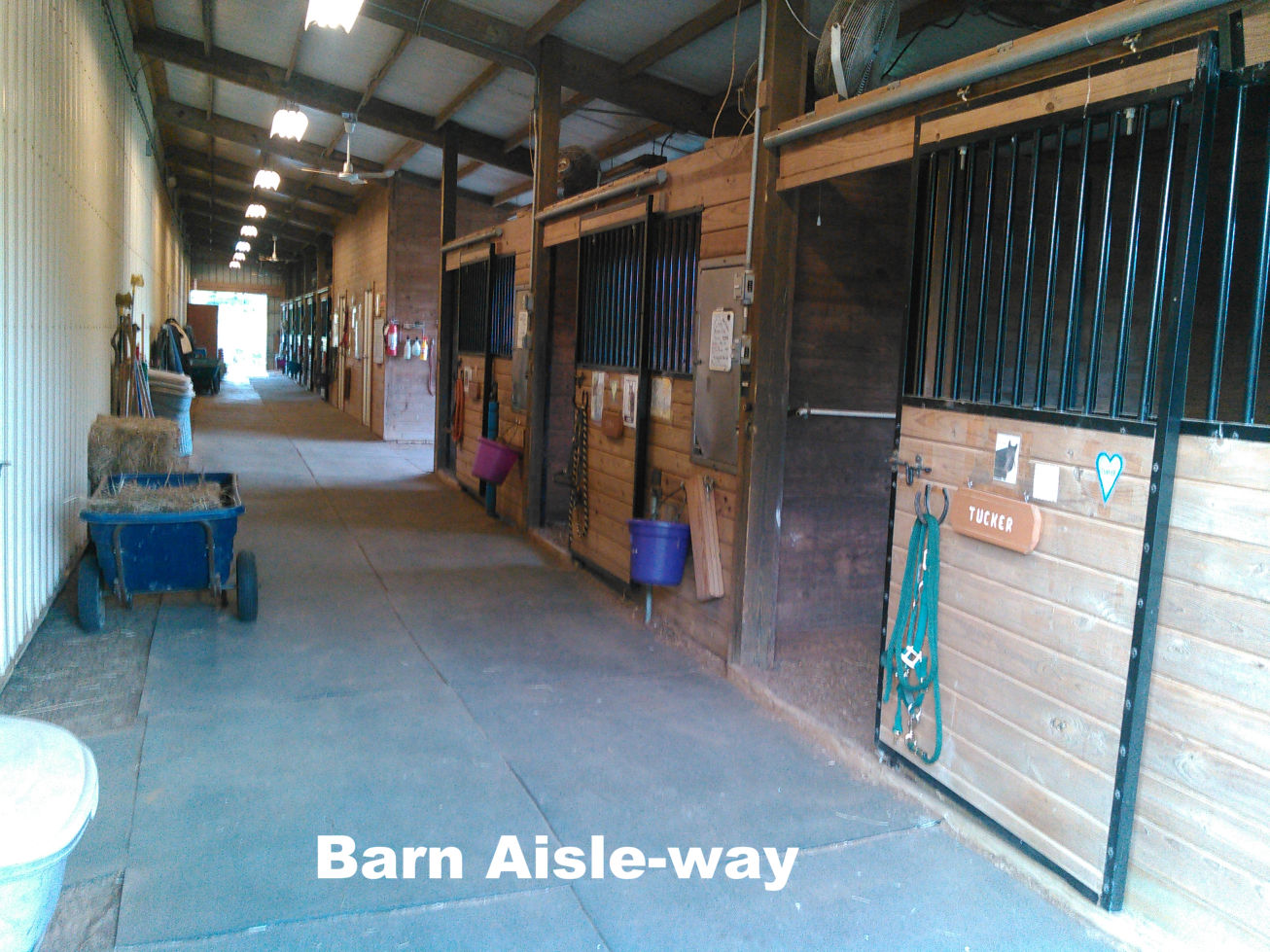
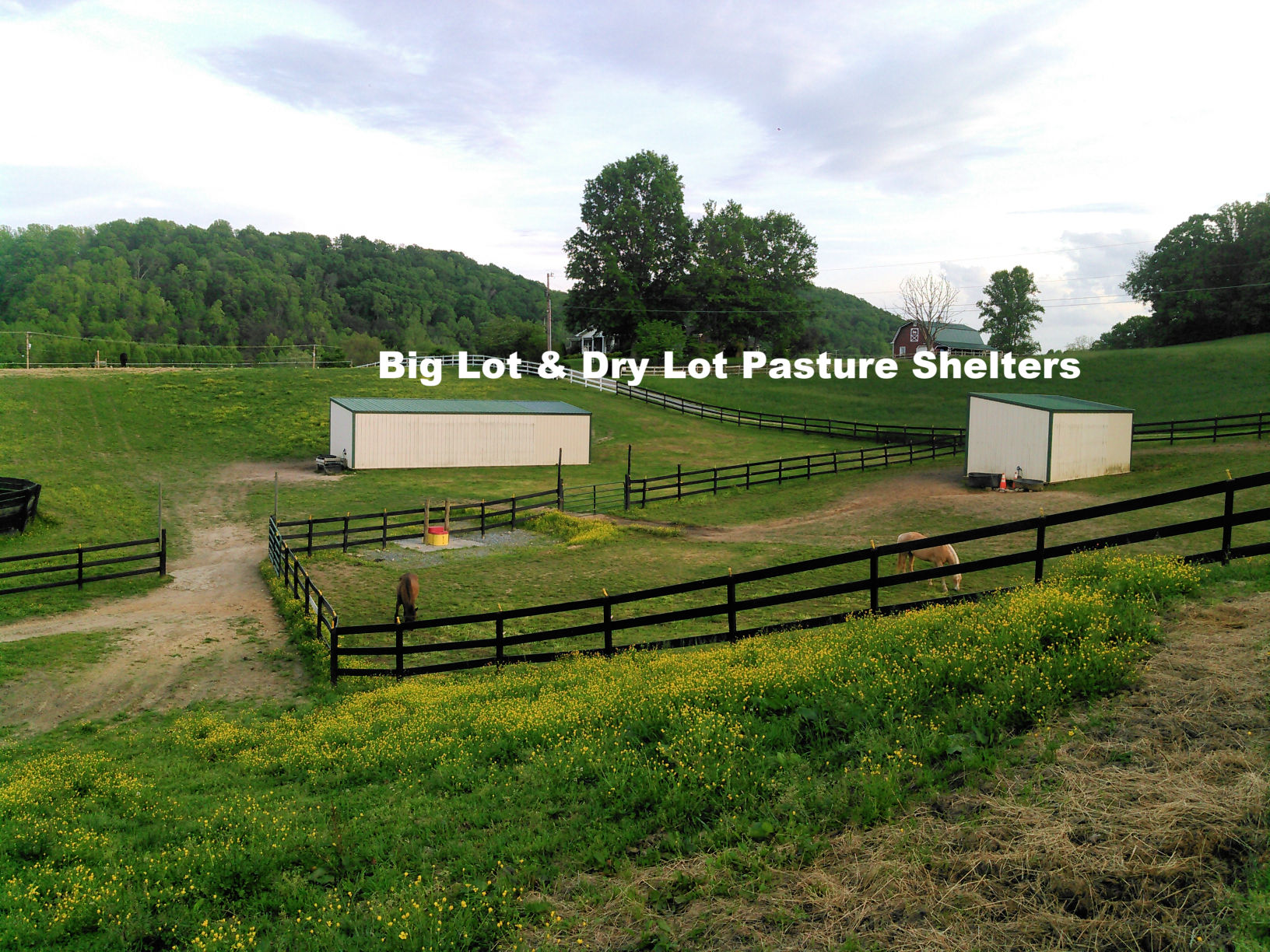
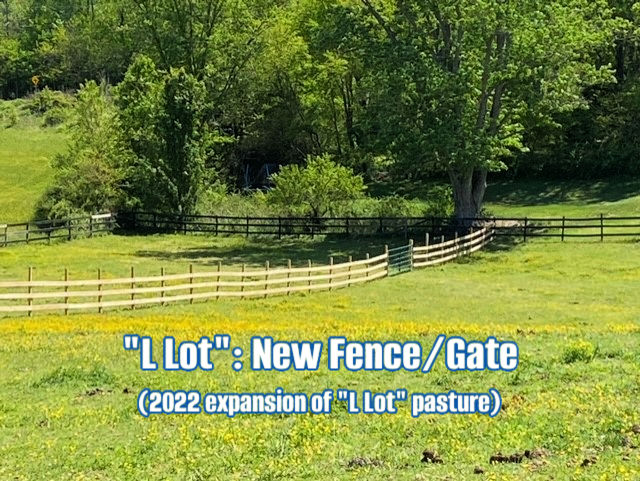
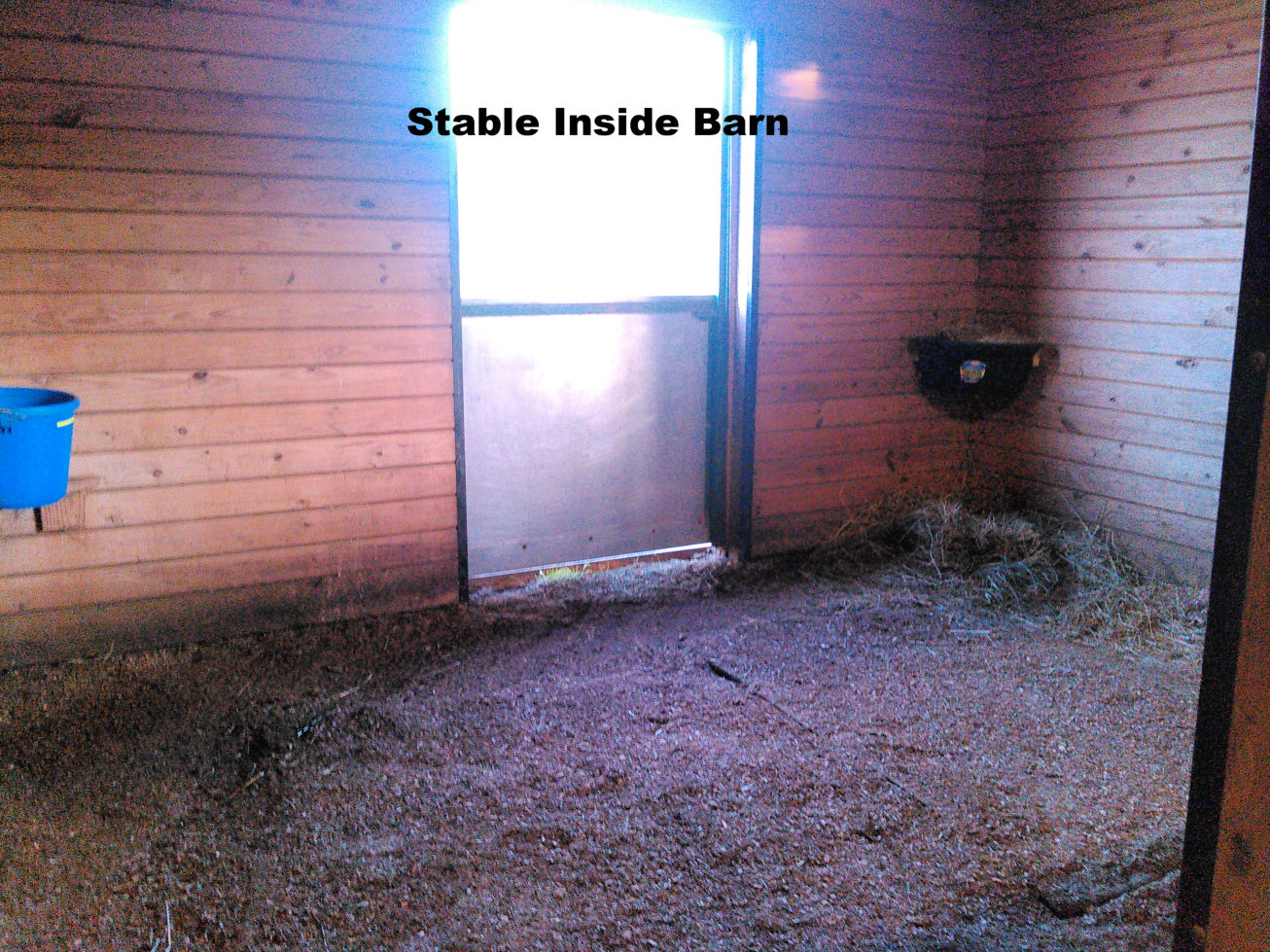
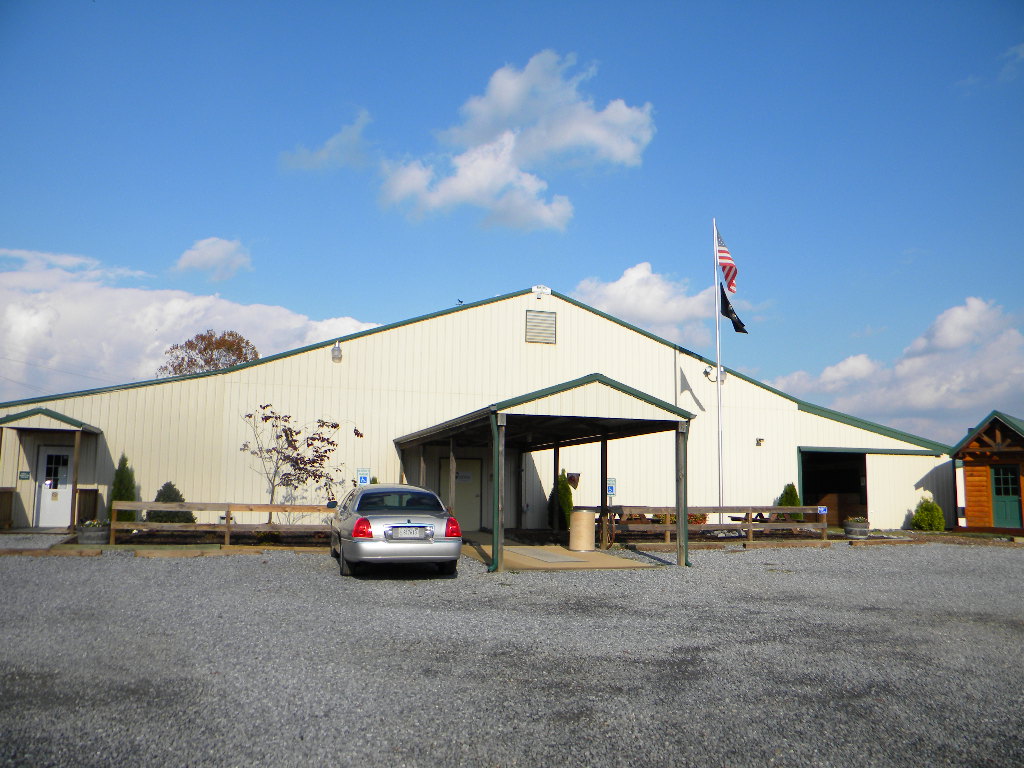
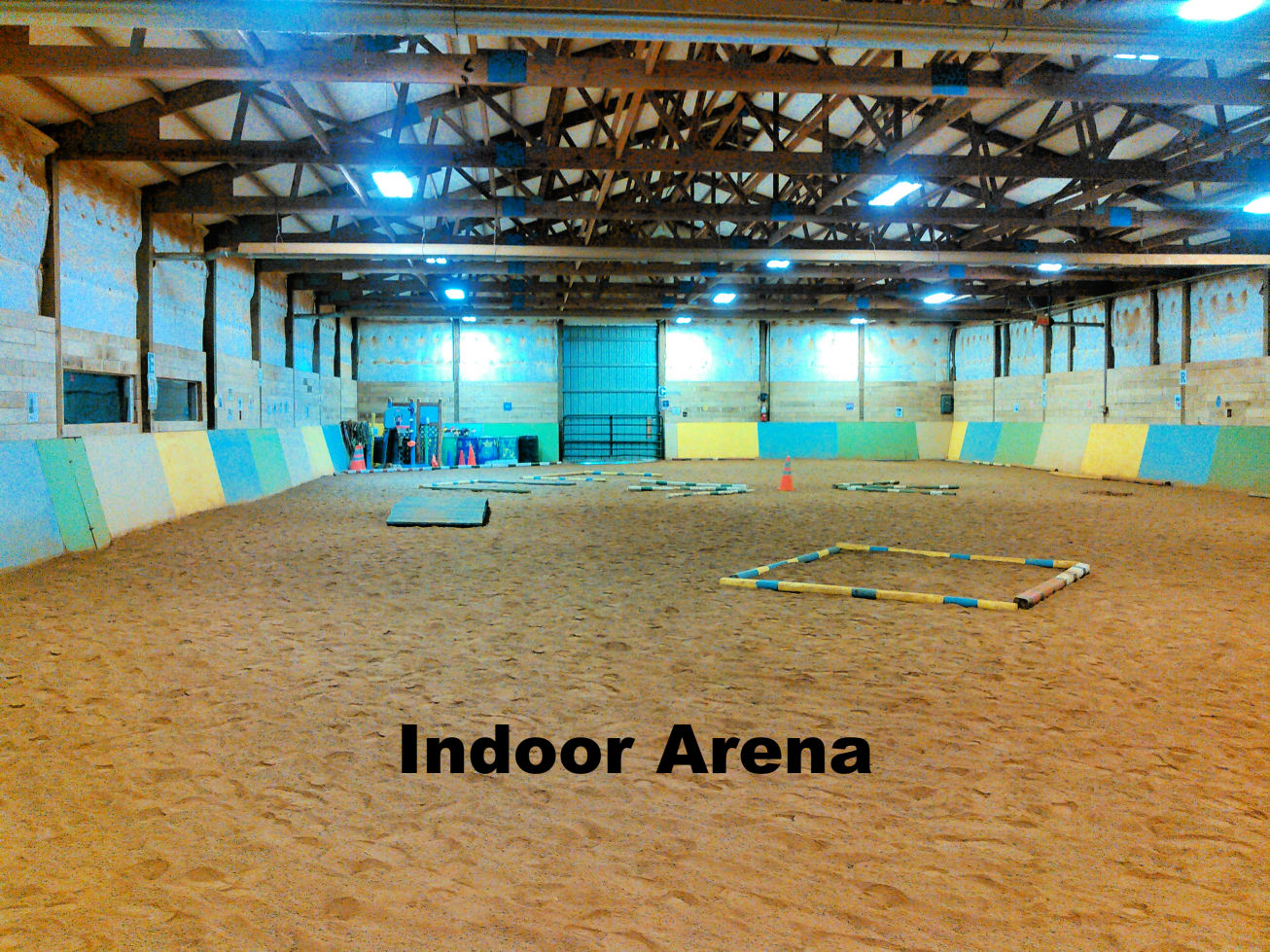
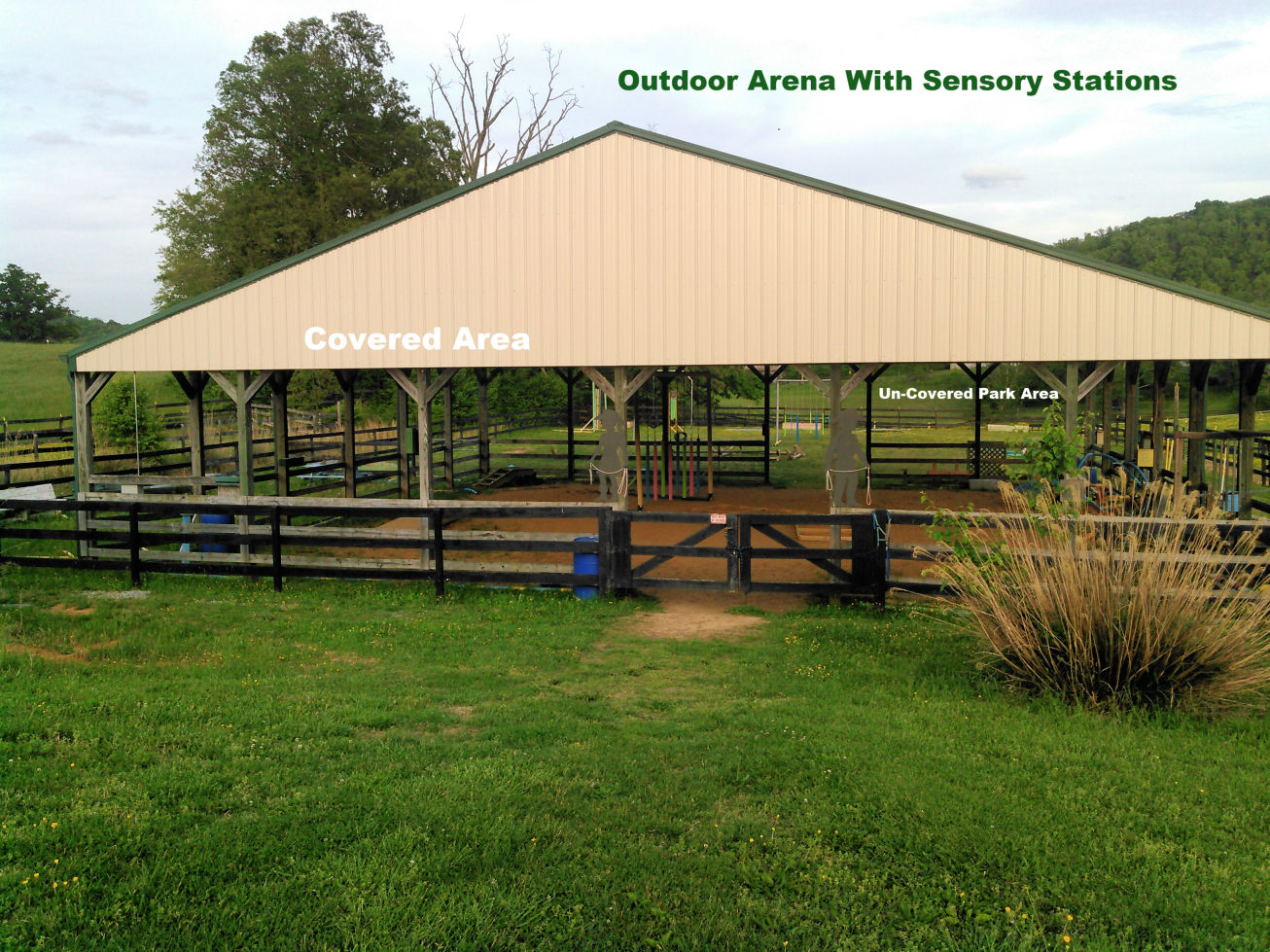
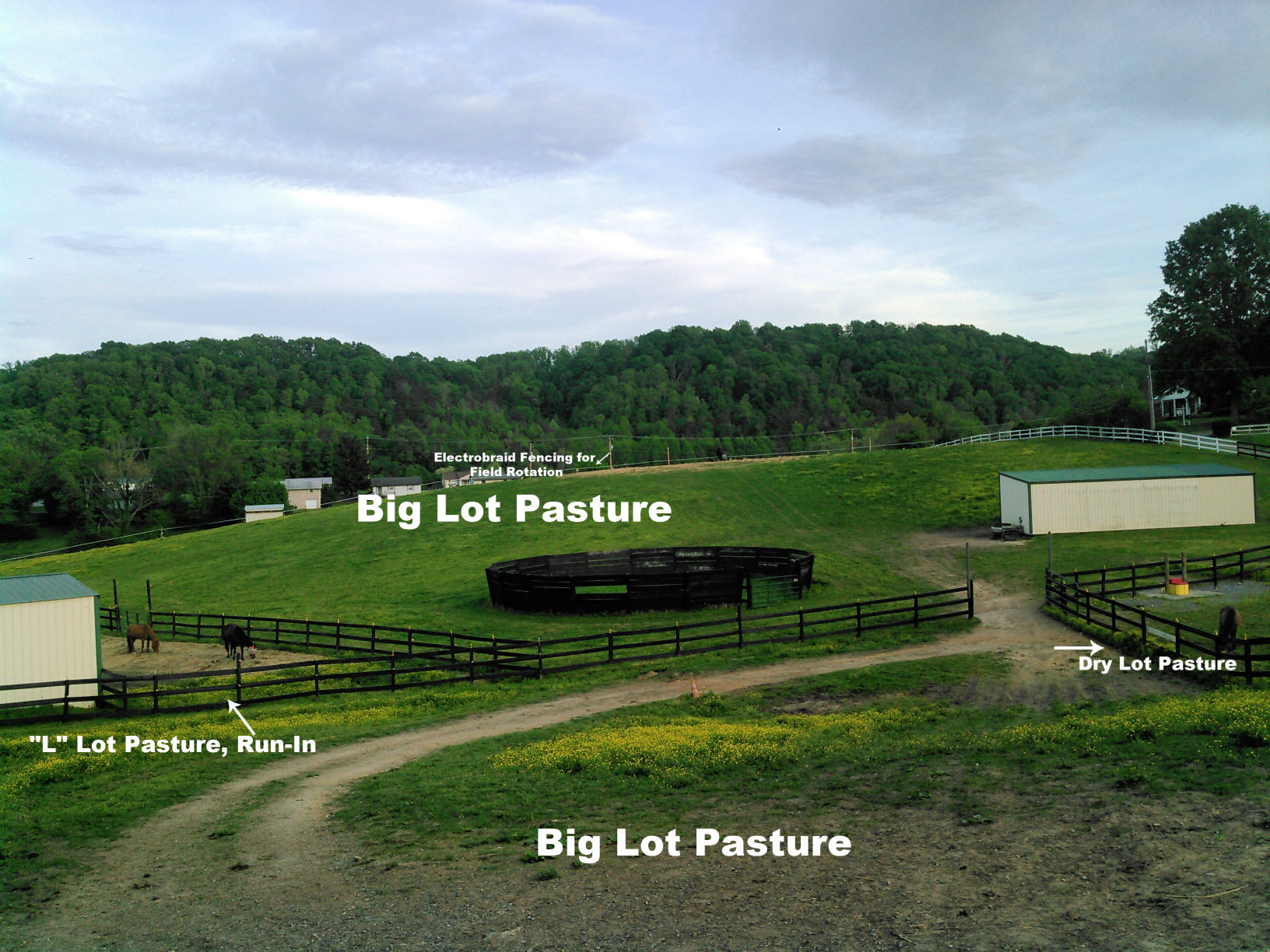
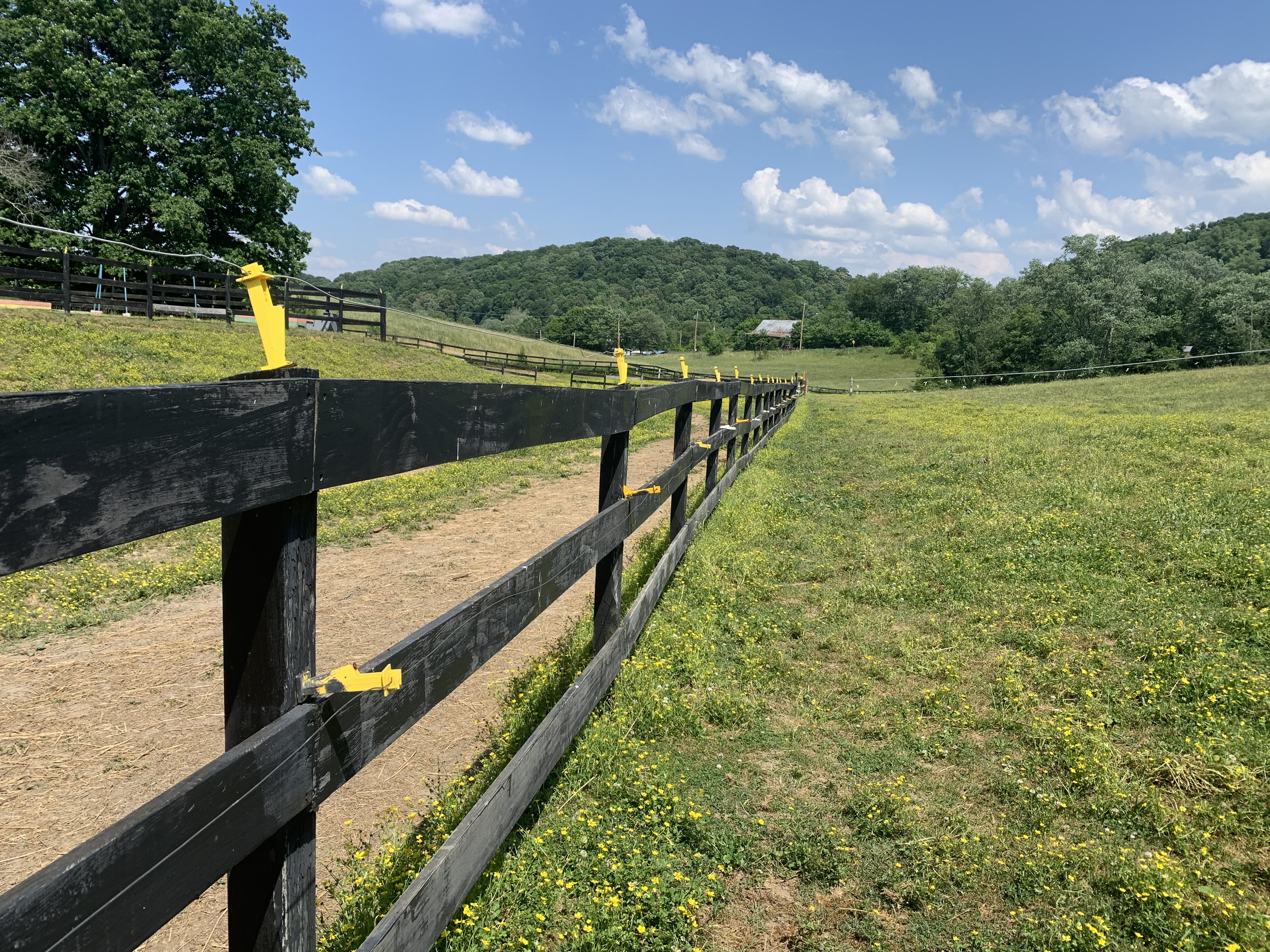
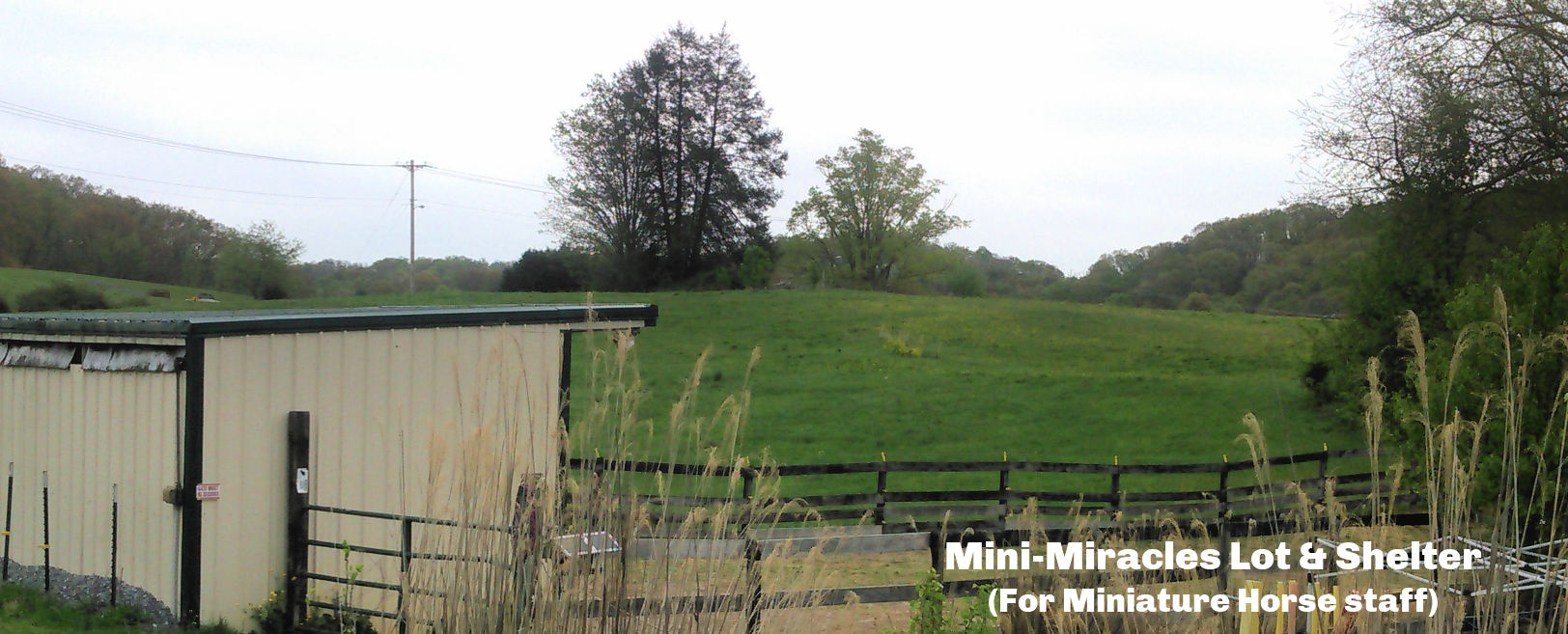
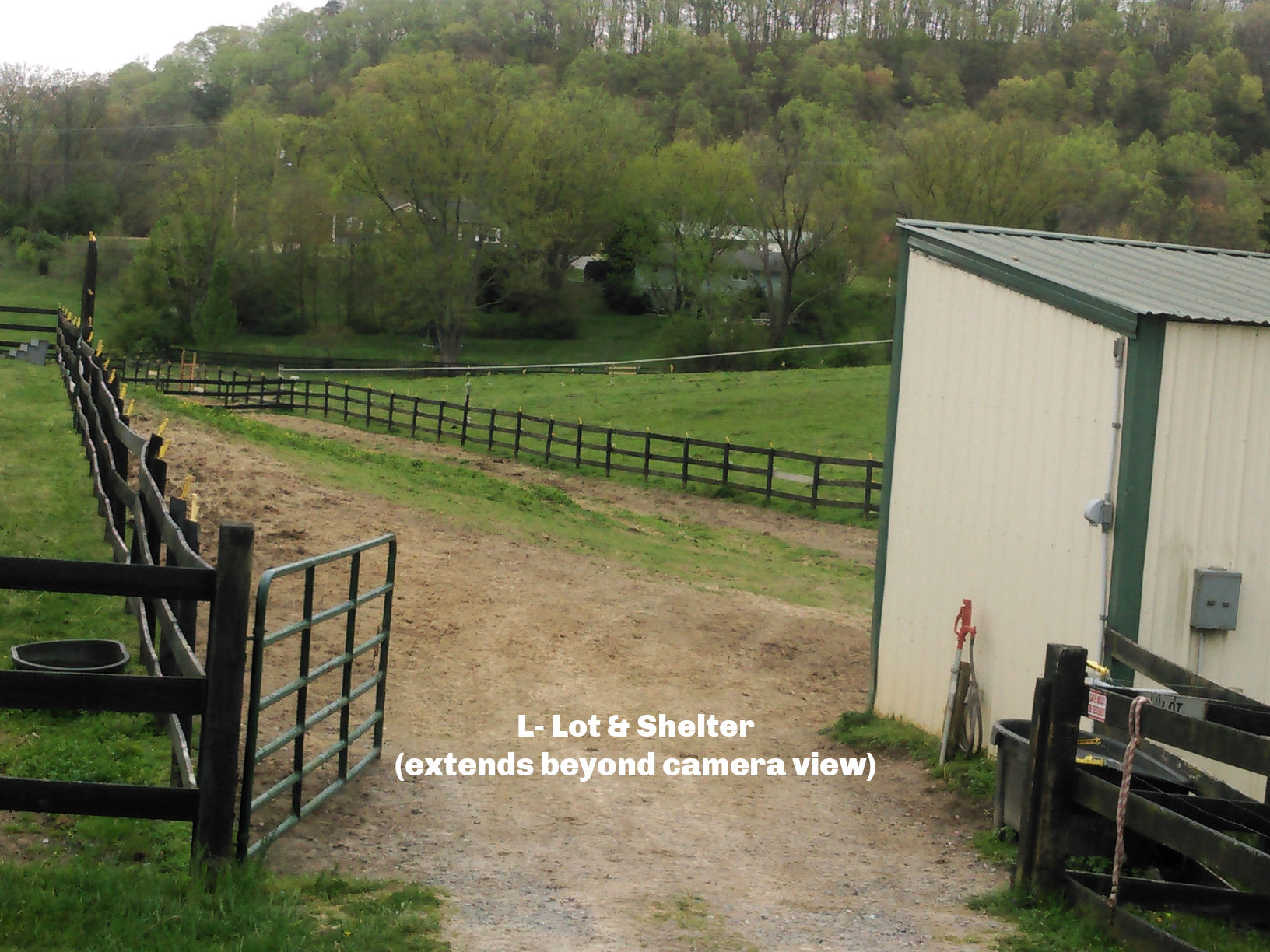
Are the organization's rules, restrictions and warnings (signage) conspicuously posted in easily accessible locations? Yes
Are the organization's emergency contacts, including veterinarian contact information, conspicuously posted in easily accessible locations? Yes
Are human and equine first aid kits easily accessible? Yes
Regarding all shelters where horses are housed including run-in sheds:
Do horses have assigned stalls in the barn/structure(s) or exclusively assigned shelter locations where they are separated from other horses with a barrier? Yes
How many hours per day, on average, are horses stalled or restricted to these sheltered exclusive shelter locations? 4-8
How often are the stalls/shelters cleaned, i.e., kept in good repair and free of standing water, accumulated waste, sharp objects and debris? 6-7 Days a Week
Do all stalls/shelters allow horses to lie down, stand up and turn around and provide protection from inclement weather (wind, sleet, rain, snow and extreme temperatures)? Yes
Are stalls/shelters kept in good repair, with adequate ceiling height, and free of standing water, accumulated waste, sharp objects and debris? Yes
Are floors constructed and maintained for both good drainage and traction? Yes
Is there a ventilation and circulation system in place to allow free flow of air to control temperature, and humidity, and to prevent air stagnation? Yes
Is wiring inaccessible to horses and maintained for safety in all areas of facility? Yes
Are fire prevention/protection measures (fire alarms, extinguishers and sprinkler systems) maintained and in good working order? Yes
Is there adequate lighting to ensure safety in all areas of facility? Yes
How many hours per day, on average, are horses turned out:
Equines are out 16+ hours per day
The following describes the pastures at this facility:
A dedicated staff person(s) is responsible for pasture management
All pastures are fenced to prevent escape or injury
Electric fencing is used; electric wires or tape fence are visibly marked
Fencing checks, such as broken or missing planks, loose fence posts, exposed or loose nails, detached wires, etc., are done regularly
Pastures have man-made protection for equines (i.e., shelters)
This facility does not have pastures where equines can graze on pasture grass
This facility has a written plan in place for pasture management, which includes guidelines for seeding, fertilizing, irrigation, mowing, dragging, harrowing, manure removal, removal of debris, the control of poisonous plants, and a schedule for cleaning
Barbed wire is used for fencing
Pastures are rotated
Pastures have natural protection for equines (i.e., trees)
The following describes the turnout areas other than pastures at this facility:
A dedicated staff person(s) is responsible for the maintenance of turnout areas
All turnout areas are fenced to prevent escape or injury
Electric fencing is used; electric wires or tape fence are visibly marked
Turnout areas have man-made protection for equines (i.e., shelters)
Fencing checks, such as broken or missing planks, loose fence posts, exposed or loose nails, detached wires, etc., are done regularly
This facility does not have turnout areas
This facility has a written plan in place for the maintenance of turnout areas, which includes a schedule for cleaning, manure removal, and dragging
Barbed wire is used for fencing
The following policies and procedures are in place at the facility to restrict public access and to keep horses safe:
There is a mechanism in place to monitor equines overnight
No Trespassing signs are posted
Hold Harmless signs are posted
Authorized Personnel Only signs are posted
Entrance gates are locked at night
Visitors are only permitted at specific times
Visitors are only permitted in specific areas
The property is fitted with motion lights
The property is fitted with a security system monitored by police or a professional service
The property is fitted with a security system that is monitored internally by staff (or the property owner)
The perimeter of the property is fully fenced
The property owner, staff member or caretaker lives on the premises and ensures that public access is restricted and is responsible for the security of the facility and equines
A security guard is present at night
By Appointment Only signs are posted.
Equine Care/Emergency Preparedness: Small Miracles Therapeutic Equestrian Center, Inc. (*Main) 2026 and 2025 This section is required.
Horse Health Care/Barn Management Records: What system is used to collect and store health/horse care records?
Notebook or equivalent (technology not utilized)
The following items are consistent with our feed management plan and practices:
Equines are provided with individualized feeding plans, including supplements, according to the equine's age, breed/type, condition, size, work level and any health issues, consisting of nutritious food provided in sufficient quantity and access to adequate natural forage, or be fed daily, or as recommended by the organization's veterinarian
Feed plans are determined in consultation with a veterinarian
Supplement plans are determined in consultation with a veterinarian
Equines are fed grain in individual stalls
Equines are fed grain in groups
Staff and/or volunteers are trained in proper feed measurements and protocols and observed periodically to ensure they are feeding correctly
The feed chart is centrally located and updated as needed
The area(s) where hay, feed, grain, and supplements are stored are kept clean, free of debris and chemicals, and protected from weather and other animals in rodent-proof and mold-proof containers and grain bins
Feed, supplements and hay types are clearly labeled
Water sources, i.e., buckets, troughs, automatic waterers, etc. are kept clean, free of contaminants, debris and chemicals, protected from weather and other animals, and be positioned or affixed to minimize spillage.
Medications are kept in a secure area
Is clean, potable water available at all times for all equines? Yes
Hoof Care: How often is hoof care provided for each equine? Every 4-8 weeks and when an issue arises
Dental Care: How often is dental care provided for each equine? Annually and when an issue arises
Horse checks: How often are equines visually and physically checked by personnel at the facility? Every day or 6 days a week
Our organization has the following parasite and fly/insect control protocols in place, including remedies used to control flies and insects:
Our organization follows the parasite control guidelines of our veterinarian, including fecal testing and de-worming
Fly/Insect Control Remedies:
Fly Traps and Tapes
Fly Spray Repellent
Fly Masks
Fans
The following represent the biosecurity practices in place at facility:
Our organization follows the biosecurity guidelines of our veterinarian
Sick, affected and/or quarantined equines do not have contact with other equines or other animals
The organization has a written biosecurity plan
Staff are trained in best practices related to biosecurity
Volunteers are trained in best practices related to biosecurity
A specific individual is trained and assigned to care for sick, affected and/or quarantined equines
Sick, affected and/or quarantined equines are cared for last if the caretaker must also care for healthy equines
Restricted access signs are posted at primary points of access to sick, affected and/or quarantined equines
Hand sanitizers are available at all primary points of access to sick, affected and/or quarantined equines
Footbaths are available at all primary points of access to sick, affected and/or quarantined equines
Quarantine areas, such as stalls, aisle ways, paddocks, and common areas, are cleaned (and needed, disinfected) after conclusion of the quarantine.
Trailers/vans used by sick, affected and/or quarantined equines are cleaned and disinfected after each use and cleaning takes place away from where equines are sheltered
Equipment used by sick, affected and/or quarantined equines is not shared
Equipment used by sick, affected and/or quarantined equines is cleaned of organic debris and disinfected after each use
Latex gloves, or equivalent gloves, are worn when working with sick, affected and/or quarantined equines
Manure and bedding from sick, affected and/or quarantined equines is removed from the facility - not put in open air piles, and not spread on pastures
Equines are not quarantined on arrival.
Additional information on biosecurity:
Manure and bedding from a sick, affected and/or quarantined equine is placed in open air piles, in assigned manure pit.
The following represent the manure removal practices in place at facility:
Manure is piled in an area where equines are not located
Manure is hauled, sold or given away
Manure piles are composted or spread on pastures
Our organization adheres to the manure management guidelines set by the state, local authorities, and/or our organization's veterinarian
Manure is stored in dumpster(s)
Manure piles are covered
The following steps are taken to help staff and volunteers readily identify each horse on the property:
Equines are assigned the same exclusive stall/shelter location each day
Name plates are located on the stall/shelter location
Photos are located on the stall/shelter location
Equines wear halters with nametags
A notebook or binder with photos and information on each equine is easily accessible
A map/diagram is posted showing the location of each equine with equine names and photos
Equine photos and profiles are available on the website
Staff/volunteers are provided training on conformation, markings, colors, and breeds
Team leaders work with new staff/volunteers until they are able to identify the equines
Staff and volunteers are provided with an information packet with equine profiles, including photos and detailed descriptions
Our organization has the following policies and procedures in place pertaining to tack, apparel and equipment:
Saddles are shared
Saddle pads are shared
Bridles are shared
Bits are shared
Blankets, sheets and turn out apparel are fitted and utilized for each equine appropriate to the equine's needs and the weather conditions
Blankets, sheets and turn out apparel are cleaned regularly as needed
Riding Tack is always cleaned at least weekly
Riding Tack is inspected for overall working condition before each use by trained personnel
Riding Tack is assessed for fit before each use by trained personnel
Riding Tack is assessed for fit by trained personnel when an equine's body condition changes
Riding Tack is assessed for fit by trained personnel when an equine's disposition changes
Assigned riding tack is clearly labeled
Riding Tack is stored in a climate-controlled location
Helmets are shared
Helmets are cleaned/disinfected after each use
Helmets are replaced after a fall
Helmets are replaced at least every five years.
All equines have specifically assigned apparel, equipment and tack (saddles/bridles if ridden) that is not shared
Blankets are shared
Sheets are shared
Turnout apparel is shared
Halters are shared
Riding Tack is always cleaned after each use
Riding Tack is cleaned only when needed
This facility enlists the services of a professional saddle fitter at least once a year
No equines are ridden; saddles, bridles, etc. not applicable.
Emergency Preparedness: Small Miracles Therapeutic Equestrian Center, Inc.: *Main This section is required.
The following plans, policies, and procedures are in place at the facility to handle emergencies and address weather related issues, fire safety procedures, and/or any additional hazardous scenarios the facility could potentially experience:
Emergency procedures are posted prominently
The facility maintains at least two weeks of hay, feed, shavings and medications
The facility collects and maintains medical information from staff, volunteers, and clients
The facility maintains appropriate liability and/or workers' compensation insurance
The organization has a written emergency preparedness/safety plan (EPP)
The facility owns or has access to a generator
Local fire department and/or the state's emergency planning department procedures
Medical emergencies for clients, staff, and volunteers
Medical emergencies for equines
Evacuation plans
Power outages
Fire
Natural Disasters - thunderstorm, hurricanes, earthquakes, tornados, etc
Protocols to notify emergency personnel
Building/facility exit plans
Terrorist attacks
The facility follows the specific procedures to help PREVENT emergency situations:
Smoking is strictly prohibited
NO SMOKING signs are posted prominently
Hay is stored away from permanent or temporary structures where equines are stalled
Permanent or temporary structures where equines are stalled are kept free of dust, cobwebs, trash, cleaning rags, and other flammable items
Aisles and doorways are kept clear
Heaters with automatic shutoff settings are used
How often are the following checked or performed?
Fire Extinguishers are checked: Semi-annually
Smoke detectors are checked: Daily
Fence lines are checked: Daily
Turnout Areas are checked: Daily
Sprinkler systems are checked: Not at all/NA
Fire drills are conducted: Annually
Review of safety protocols with staff are conducted: Annually
Review of safety protocols with volunteers are conducted: Annually
The Emergency Preparedness Plan is reviewed and updated: Annually
Equine Transportation: 1= Onsite: 1 (1 + 0) + Offsite: 0
2-horse van/trailer with truck:
1 Owned onsite